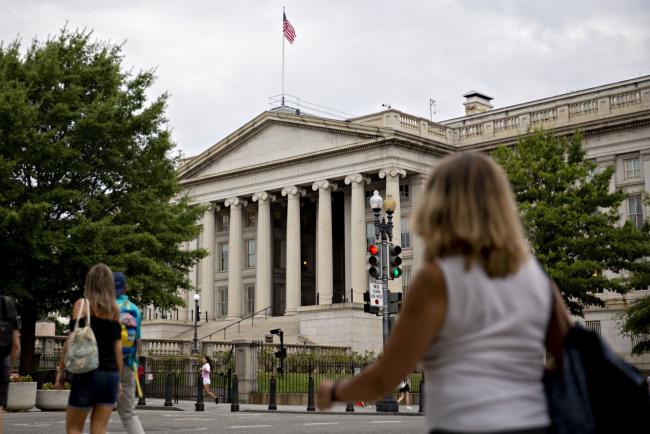(Bloomberg) -- Treasury 10-year yields may drop as low as 1.50% as Iran’s rocket attacks against U.S. bases threaten to ignite a wider Middle-East conflict, money managers say.
Benchmark U.S. yields are poised to extend declines as investors scramble to revise plans for the year following news of Iran’s retaliation, said Shane Oliver, head of investment strategy at AMP Capital Investors Ltd. The Federal Reserve is now more likely to cut interest rates, further supporting bonds, said Akira Takei, a global fixed-income fund manager at Asset Management One Co.
“Iran has replaced the trade war as the biggest risk to markets,” Sydney-based Oliver said. “2020 has been hijacked by escalating Middle-East tensions and investors will be repositioning their portfolios to reflect this. There is a strong case in the short term for investors to buy havens.”
Treasury 10-year yields slid as much as 11 basis points to 1.70% after Iran fired a series of rockets at military facilities in Iraq hosting American troops. Gold jumped to the highest level in more than six years and the yen strengthened against all its major peers as demand for haven assets surged.
Traders said the attacks spurred panicked buying of Treasuries from some investors, triggering circuit breakers to briefly interrupt trading in 30-year bond futures. The decline in 10-year yields pushed them below a rising trendline that has been in place since early September.
“Risk assets will be sold and bonds are bought, even as the dollar is dumped as the U.S. is directly involved, ”said Asset Management One’s Takei, who has been buying Treasuries.
Sovereign bonds in Australia and Japan also rallied. Aussie 10-year yields slid as much as nine basis points to 1.13%, while Japan’s drop 2 basis points.
The Treasury trade is set to become even more crowded, according to Kyle Rodda, an analyst at IG Markets in Melbourne.
“The key for investors will be any attacks on energy-producing assets,” he said. “That has the potential to derail markets.”
